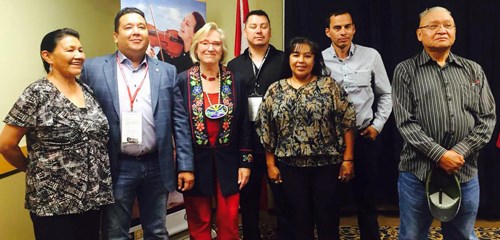Water is one of the quintessential elements of life and for those on the White Bear First Nations, clean drinking water, has been elusive as they have been under a water advisory for more than five years.
The efforts of the Water Treatment Plant Committee of 2015-2017 from White Bear First Nations contributed to the success found recently as Indigenous and Northern Affairs Minister Carolyn Bennett announced on Tuesday, July 25, that the federal government will be replacing the water treatment system.
The front line workers, Water Treatment Plant Committee, and previous Chief and Council worked hard over many years to reach this moment. As more than 800 residents on the White Bear First Nations have not been able to drink their water since 2011.
“I think everyone here will acknowledge it’s been a long time coming and for far too long people in your community have not had access to potable water on reserve,” Bennett stated in Regina at the Assembly of First Nations’ annual meeting.
“You should still have the same right as those of us in downtown Toronto to be able to turn on the tap and drink the water and bathe your babies safely; things that most Canadians take totally for granted.”
Although just announced the $9.2 million project is expected to be completed by December of next year. It is part of a larger promise made by the federal government, in which Prime Minister Justin Trudeau recognized 93 communities under 133 boil water advisories, pledging himself and his government if elected to correct this. Their efforts for those communities in need are expected to come together by 2021.
“This five-year commitment is hugely important because most systems take about two to three years from the feasibility and the design to the implementation,” Bennett explained. “We know that there’s a lot more to do, but we’re on track to lift the remaining ones within that five-year timeline that we promised.”




